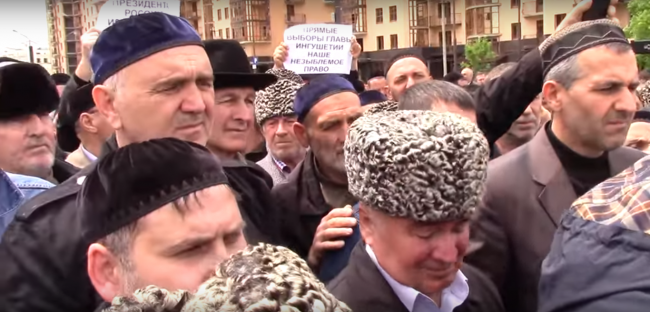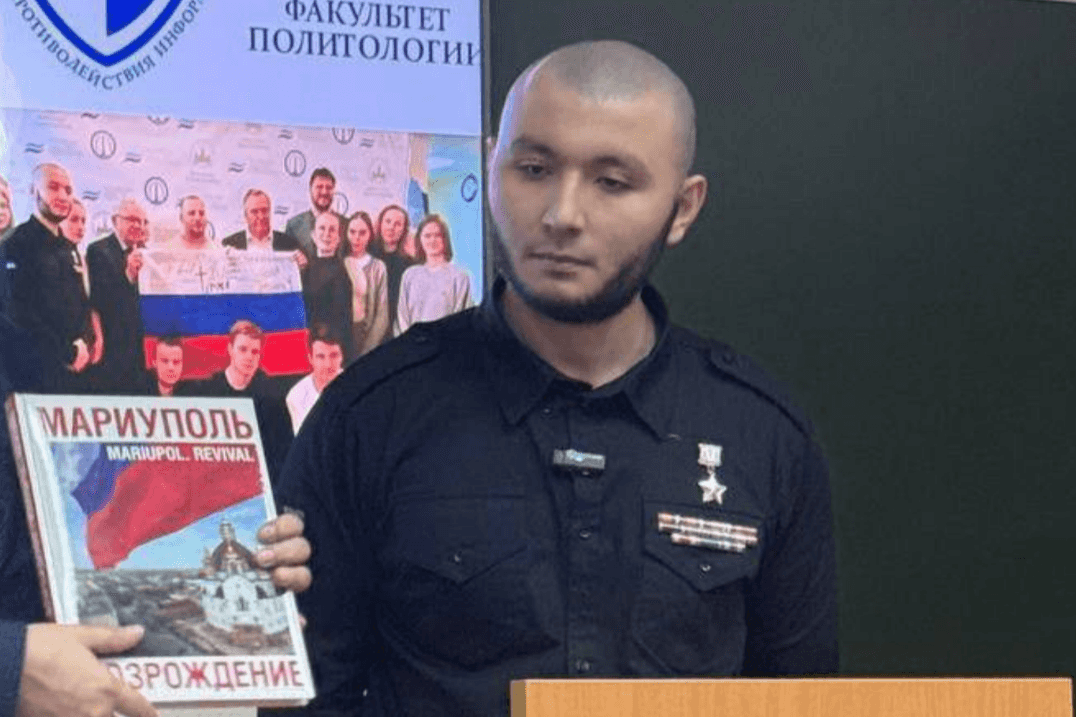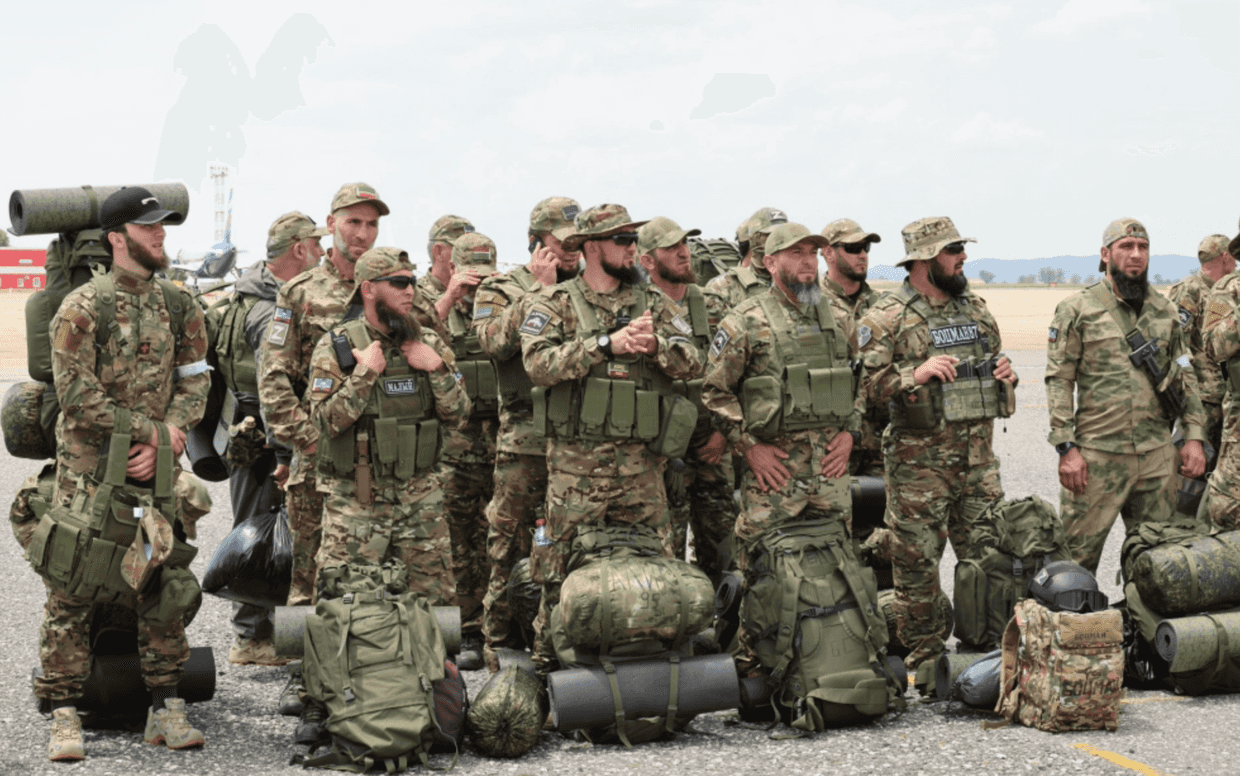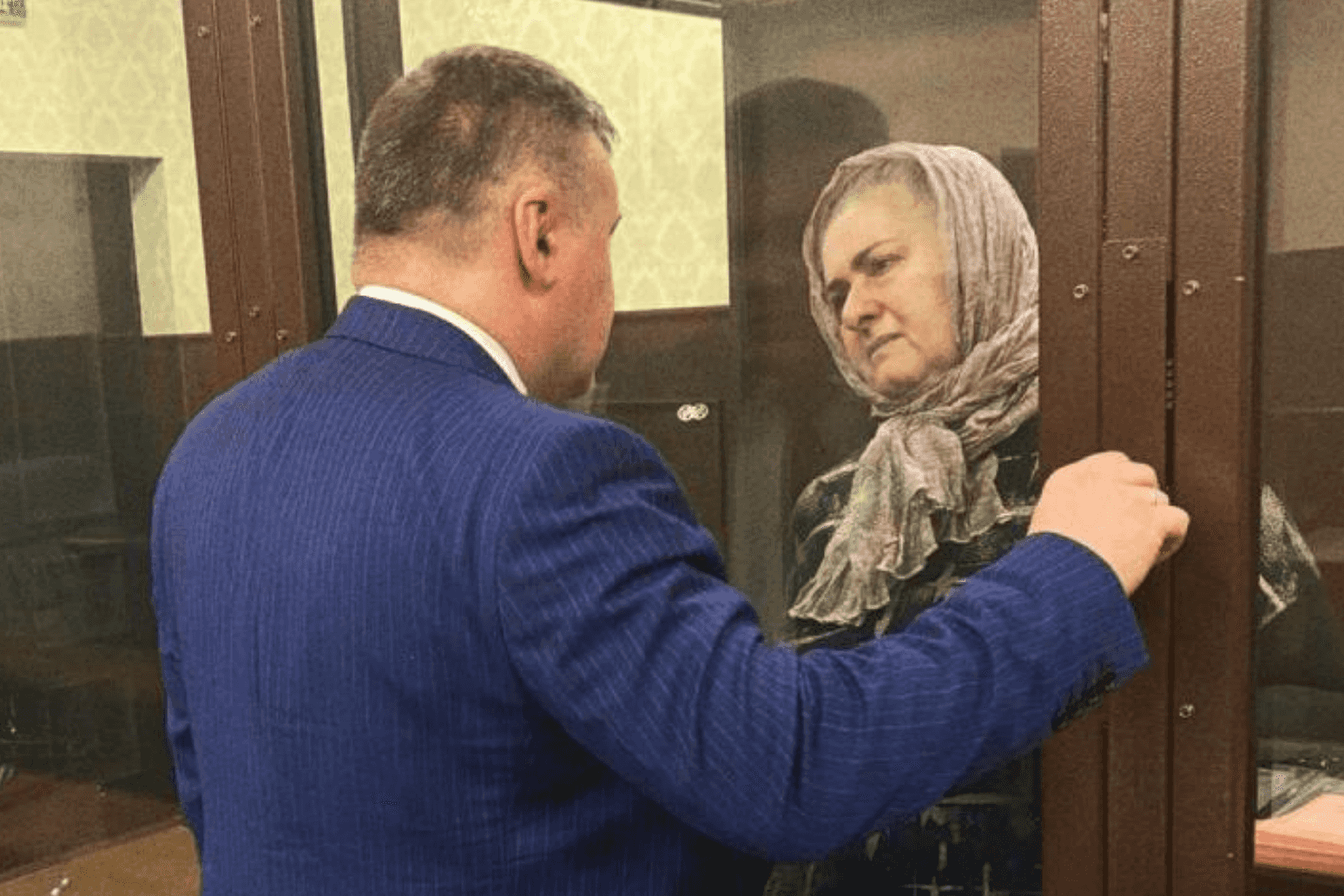

 Hundreds rallied in front of the government offices and parliament in Ingushetia’s capital Magas on Saturday, demanding the return of direct elections for the head of the republic. The Council of Teips (clans) of the Ingush People tried to obtain a permit to hold the demonstration, but after being denied, decided to go ahead anyway, Caucasian Knot reports.
Hundreds rallied in front of the government offices and parliament in Ingushetia’s capital Magas on Saturday, demanding the return of direct elections for the head of the republic. The Council of Teips (clans) of the Ingush People tried to obtain a permit to hold the demonstration, but after being denied, decided to go ahead anyway, Caucasian Knot reports.
Ingushetia’s head, Yunus-Bek Yevkurov, has already expressed a wish to be re-appointed in September.
‘The head [of the republic] must be elected by the people’, claimed Mussa Albogachiyev of local oppositional organisation Mekhk-Qel, insisting that the demonstration had just one demand and was not necessarily against Yevkurov. Albogachiyev denied any connection to a recent decision by the Spiritual Centre of Muslims of Ingushetia — more commonly known as the Muftiate — to openly condemn Yevkurov.
Ingushetia’s Parliamentary Speaker Zelimkhan Yevloyev told the rally that parliament supported the existing laws.
The Council of Teips has previously called for the return of direct elections in the republic, signing an appeal by the councils of elders of Karachay and Ingushetia and presenting it to Ingushtia’s parliament in October 2017.
Direct elections of regional leaders were initially scrapped in Russia in 2004, brought back during Medvedev’s presidency, and then revised again after Putin’s comeback to the presidency. The latest changes gave regional councils the power to opt for appointment instead of directly electing governors — all regions of the North Caucasus opted to have their heads centrally appointed by the president except for Chechnya.
One of President Putin’s promises on the eve of his latest reelection was to support Russia’s transitioning back to direct elections for heads of regions.
The Muftiate’s renunciation
The protest in Magas came as a conflict between the head of Ingushetia and the traditional representative body of local Muslims — the Muftiate — came to a head. On 27 May, after meeting with local imams and elders, the Muftiate renounced Yevkurov until he stopped expressing ‘discrimination against the clergy’ and refusing to account for money collected by the religious community to build a mosque in Magas.
The authorities earlier seized land from the Muftiate reserved for the construction of a new mosque in Magas, transferring ownership to the municipality.
The Muftiate’s renunciation of Yevkurov included discouraging Ingush Muslims from attending any events associated with the head of republic.
Yekaterina Sokiryanskaya, a human rights advocate and director of think-tank the Centre for Conflict Analysis and Prevention, said that the Muftiate’s decision was a ‘political’, ‘pre-election’ move, probably addressed to Kremlin, as the Muftiate is not eager to see Yevkurov appointed for a third term.
Yunus-Bek Yevkurov called the Muftiate’s decision ‘provocative’ and an act of ‘political conspiracy’. He criticised them for failing to be ‘moderate’ and ‘peaceful’ during Ramadan or contributing to the government’s efforts in tackling religious extremism. Nevertheless, Yevkurov invited Mufti Isa Khamkhoyev and other clergy for a ‘reconciliatory’ iftar, the evening dinner held during the month of Ramadan.
In autumn 2016, after Yevkurov unsuccessfully urged Muslims to replace Khamkhoyev as Mufti, the authorities tried to deregister the Muftiate as an official organisation, but the Supreme Court blocked this.
In February 2018, Yevkurov demanded sermones be monitored by CCTV cameras to prevent ‘extremism’, an initiative that was also condemned by the Muftiate.
Ingush–Chechen tensions
Tension between Yuvkurov and the Muftiate come with the backdrop of tensions between Yevkurov and Chechen Head Ramzan Kadyrov, who has cultivated strong ties with the Ingush Muftiate. Kadyrov has made territorial claims to large parts of Ingushetia, which Yevkurov has in turn condemned.
Kadyrov has also pursued a hardline policy against the Salafi minority in Chechnya, whom he accuses of extremism, an approach supported by Mufti Isa Khamkhoyev in Ingushetia. Both have been vocal critics of Ingush Salafi leaders Khamzat Chumakov and Isa Tsechoyev.
Yevkurov, in contrast, has advocated a softer approach and attempted to reconcile Sufi–Salafi tensions in Ingushetia.
According to Kavkaz.Realii, in 2016, both Chumakov and Tsechoyev were targets of unsuccessful terrorist attacks. In the same year Khamkhoyev attempted to seize a mosque from Khamzat Chumakov, leading Yevkurov to call for Ingush Sufis to replace Khamkhoyev with someone else.









